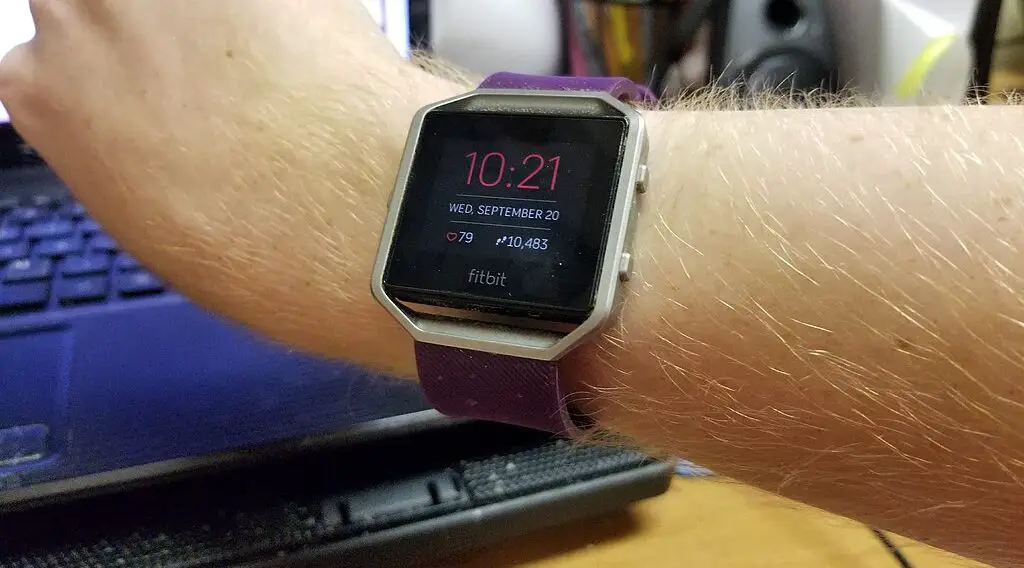“Should I wear my Fitbit all the time?” This article will provide you with a comprehensive guide on when and why you should or shouldn’t keep your Fitbit strapped to your wrist all day and night. We’ll go through the capabilities of the Fitbit, the pros and cons of constant wear, and what experts recommend for optimal use.

Understanding Your Fitbit’s Capabilities
Knowing what your Fitbit is capable of is the first step in answering whether or not you should wear it all the time.
Fitbits are designed to track various forms of data like the number of steps you take, your heart rate, how much you sleep, and even your stress levels through built-in sensors. Some models also come with GPS and can measure altitude, making them useful for hiking and outdoor activities.
Understanding these features will help you assess how you can benefit from each one and consequently, how often you should wear your device.
Pros of Wearing Your Fitbit All the Time
One of the most compelling reasons to wear your Fitbit all the time is to take full advantage of its numerous features. Let’s explore the significant benefits in detail:
Comprehensive Data Tracking
Fitbits are designed to collect an extensive array of data about your physical activity. This includes steps, distance traveled, and calories burned. The more consistent you are in wearing your device, the more accurate your long-term data will be. This helps in providing a clearer picture of your daily activities, thus aiding in setting realistic health goals.
Sleep Quality Monitoring
If you wear your Fitbit to bed, it can monitor various sleep stages, such as light sleep, deep sleep, and REM cycles. This is valuable information that can guide you in making adjustments to your sleep habits, whether it’s modifying your bedtime or the quality of your sleep environment.
Continuous Heart Rate Monitoring
Many Fitbit models have a built-in heart rate monitor that tracks your heart rate 24/7 if you wear the device continuously. Knowing your average resting heart rate can provide insights into your cardiovascular health. It’s also useful for adjusting exercise intensity based on real-time heart rate feedback.
Cons of Wearing Your Fitbit All the Time
While Fitbits offer an array of advantages, wearing them non-stop comes with its own set of drawbacks. Here are some cons that you should consider:
Skin Irritation
Consistent skin contact with the device can cause irritation, especially if moisture gets trapped under the band. It’s advisable to clean the band regularly and ensure it’s dry. Also, giving your skin a break by removing the device periodically can mitigate this issue.
Battery Life
Constant use of your Fitbit, especially if you use high-drain features like GPS, will require you to charge the device more frequently. This could be inconvenient if you don’t have easy access to a charger, particularly when traveling.
Accuracy Concerns
While Fitbit devices are relatively accurate, they are not 100% foolproof. For example, they might misinterpret rapid arm movements as steps or give less accurate heart rate readings during high-intensity workouts. Therefore, they should not replace professional medical devices for diagnostic purposes.
Should I Wear My Fitbit All the Time? Expert Recommendations
Medical experts and fitness professionals often have nuanced views on the constant wearing of fitness trackers. While they acknowledge the benefits of continuous data tracking, they also express concerns about potential drawbacks such as skin irritation. Most experts recommend the following:
Wear It For The Data You Need: If you’re mainly interested in tracking your steps and daily activities, you might not need to wear your Fitbit while sleeping. On the other hand, if sleep tracking is important to you, wearing it at night is beneficial.
Take Breaks: It’s advisable to remove your Fitbit for short periods, especially during activities where it’s likely to get wet or when you’re not actively tracking your fitness. This also gives your skin a chance to breathe.
Consult a Physician for Medical Concerns: If you have specific medical concerns or conditions that you’re monitoring with your Fitbit, it’s crucial to consult your healthcare provider for tailored advice. Remember, while Fitbits provide valuable data, they are not a substitute for professional medical evaluation and treatment.